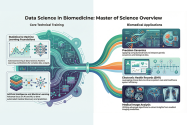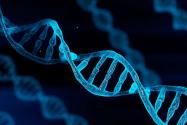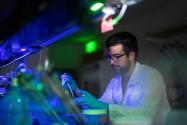Front Page

By Leticia Ortiz | Computational Medicine, UCLA

By Samantha Andrews | Computational Medicine, UCLA

The Sixth Annual Lange Symposium will be held January 26, 2026. The topic will be Computational Statistics & Biomedical Data Science. This annual event is hosted by the UCLA Departments of Computational Medicine and Human Genetics, and supported in part by a grant from the National Human Genome Research Institute; R25 HG011845.

by David Sampson | DSampson@mednet.ucla.edu
UCLA NEWS
Researchers identify dozens of genes that speed or slow genetic instability, offering targets for future therapies

by Mary Goodstein
UCLA News

By UCLA Health News
Research team finds effects of individual variants on a trait are modulated by other genes


Each year, the UCLA Samueli School of Engineering honors alumni, faculty, and students for outstanding achievements in their fields. The following profiles highlight recipients of the Eon Instrumentation Inc. Excellence in Teaching Award and the Northrop Grumman Excellence in Teaching Award.

By Leticia Ortiz | Computational Medicine, UCLA
